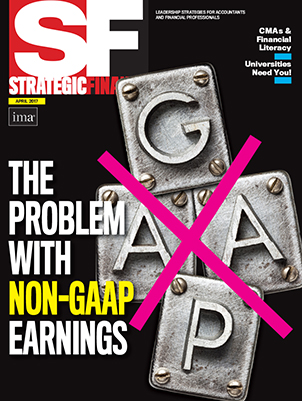In 2016, the IRS issued Proposed Regulation (REG) 163113-02, Estate, Gift, and Generation-Skipping Transfer Taxes; Restrictions on Liquidation of an Interest. Originally expected to become effective in early 2017 (see Federal Register, 81 Fed. Reg. 51413-51425, August 4, 2016), it was delayed by President Trump’s blanket executive order on January 20, 2017, staying any enactment of new federal regulations not yet published in order to give his administration time to evaluate its policies.
The proposed regulation dramatically modifies the application of current IRC §2704, Treatment of Certain Lapsing Rights and Restrictions, by amending several existing related regulations and adding a new one. The effect of these changes would essentially lead to the loss of a crucial tax-saving technique that could potentially result in a family-controlled business being valued higher than a similar business controlled by multiple parties.
With this move to substantially eliminate more than 25 years of settled tax rules associated with intra-family transfers (the passing of a family business within the same family), watchful family business owners undoubtedly viewed themselves as a target—and that target is huge! Family-owned businesses are dynamic participants in the U.S. economy, representing more than 90% of all businesses in the United States, more than 70% of all new job creation, more than 50% of U.S. GNP, and more than 50% of the nation’s employment. Unfortunately, national statistics show that fewer than one-third of family-owned businesses survive the transition from first to second generation ownership. Of those that do, approximately 50% don’t survive the transition to the third generation.
WHY THE CHANGE?
Today, transfer appraisals integrate restrictions as defined under IRC §2704, which addresses transfer tax rules for valuing intra-family transfers of interest. Enacted in 1990, IRC §2703 and §2704 intended to limit the use of valuation discounts in connection with intra-family transfers of interests. From the start, IRC §2704(b) ignored certain restrictions (termed “applicable restrictions”) when valuing family-controlled interests. Under Reg. §25.2704-2(b), a restriction isn’t an “applicable restriction” if it isn’t more restrictive than state law limitations. Revenue Ruling 93-12, 1993-1 C.B. 202, reinforced the valuation discounts appearing in transfer plans of the period. Previous successful court decisions have relied on IRC §2031, Definition of Gross Estate, and other IRC sections to substantiate their positions on valuation discounts.
Though the legislative history of IRC §2704 and later regulations does not support elimination of all valuation discounts related to liquidation concerns, the new regulation would effectively do just that. Per the Treasury’s explanation, the new regulation was drafted chiefly to address courtroom battle areas that the IRS has lost, making the rules more in line with the Treasury’s current interpretation of the tax code.
The U.S. Treasury contends that taxpayers were imposing restrictions (generally dealing with redemption and liquidation rights) on the transferred interests that, in effect, artificially reduced the value for gift tax purposes even though the economic value of the transferred property to the recipients wasn’t similarly affected. The Treasury further believes that court decisions and state statutes have limited the applicability of IRC §2704(b) in many cases by recharacterizing restrictions so that they no longer fall within the original intent of the tax law.
The Treasury anticipated that, once finalized, the new regulation would:
- Eliminate or substantially reduce the substantial valuation discounts allowed for lack of control and lack of minority considerations;
- Disregard restrictions on liquidation that aren’t mandated by federal or state law in determining the fair market value of the transferred interest; and
- Move to include limited liability corporations and other entities and business arrangements to the list of entities covered, which previously only included corporations and partnerships.
The Treasury and IRS assert that the current regulations have been substantially ineffective in implementing the purpose and intent of the old statute and, therefore, stress the necessity of this new regulation. For example, several courts have found in favor of taxpayers under the current regulations concerning points of IRS vs. taxpayer contention, such as Kerr v. Commissioner, 113 T.C. 449, 473 (1999), aff’d, 292 F. 3rd 490, 5th Cir. (2002).
CRITICISM OF THE PROPOSAL
Estate planning professionals, lawyers, and family-owned business owners direct criticism at the proposed modifications in valuation methodology. One of these modifications is in the valuing of a business at fair market value as defined in Reg. §20.2031-1(b) and §25.1212-1, which has been used for estate and gift tax case for nearly 100 years, to something similar to minimum value. The critics allege that the slight switching of terminology has no historical basis in tax statute or judicial findings and is projected to artificially inflate values and, thereby, lead to higher transfer taxes (see http://bit.ly/2nwCZZo). Taking the side of the taxpayer, legal and valuation professionals argue that valuation discounts are prudent, legitimate, market based, and should be continued.
Protesters against enactment of the new regulation also surmise that future transfers of family-owned businesses will substantially inflate taxes and potentially lead to the ultimate sale or closure of many of these affected businesses. In addition, other critics have prepared extensive comment letters suggesting the proposed regulation is in opposition to many professional standards, including the Uniform Standards for Profession Appraisal Practice and the American Institute of Certified Public Accountants’ Statement of Standard for Valuation Services.
All in all, this effort to modify the estate tax code and curb the use of valuation discounts, thereby capturing increasing estate taxes, wasn’t going to slip quietly into finalization. For now, with the new President and Congress still settling into their jobs, any chance for changes to the estate tax system seem slim. It may take more than a year for any material changes to make their way through the Congressional system. Until that time, families with intra-family transfer issues are still expected to pay close attention to the U.S. Treasury.
© 2017 A.P. Curatola

April 2017



